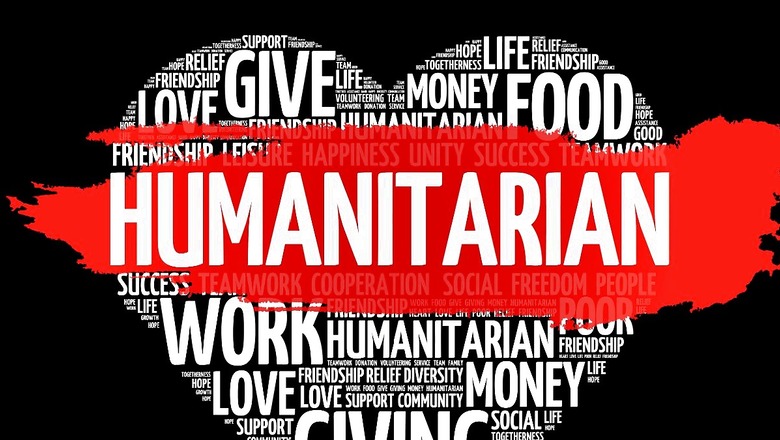
views
WORLD HUMANITARIAN DAY 2023: Every year on August 19, the world comes together to observe World Humanitarian Day, the day dedicated to honouring and appreciating humanitarian workers who strive tirelessly to alleviate the suffering of those in need. These selfless individuals play a crucial role in responding to crises, delivering aid, and promoting a better world. However, the noble work they do is not without its challenges. As we observe World Humanitarian Day, it’s important to recognize the immense dedication and sacrifice of humanitarian workers who tackle these challenges head-on.
To support these heroes, governments, organizations, and individuals must work together to address the challenges they face and create an environment where their vital work can thrive.
Here are some of the common challenges faced by the workers:
- Risk and Safety ConcernsHumanitarian workers often operate in some of the most dangerous and volatile regions on the planet, where conflict, violence, and natural disasters pose significant threats to their safety. They often work in areas with limited infrastructure and basic services, exposing them to health risks, security concerns, and even targeted attacks. Ensuring the safety of humanitarian workers is an ongoing challenge that requires careful coordination and support from governments, organizations, and local communities.
- Access to Affected AreasIn many crisis situations, gaining access to affected areas can be a formidable obstacle. Bureaucratic barriers, conflict-related roadblocks, and logistical challenges can hinder the timely delivery of essential aid and services. Humanitarian workers must navigate complex political landscapes to reach those in need, often putting their own safety at risk to provide assistance where it is needed most.
- Emotional TollHumanitarian workers witness firsthand the devastating impacts of conflict, displacement, and natural disasters. The emotional toll of constantly confronting suffering and trauma can lead to burnout, compassion fatigue, and mental health challenges. Adequate psychological support and resources are essential to help workers cope with the emotional demands of their work and ensure their well-being.
- Lack of ResourcesHumanitarian efforts often rely on funding from governments, organizations, and private donors. However, securing consistent and sufficient funding can be a challenge. Insufficient resources can hinder the scale and effectiveness of humanitarian responses, preventing workers from delivering essential aid and services to those in need.
- Long-Term Impact and SustainabilityWhile immediate relief is essential, long-term sustainable solutions are equally important. Humanitarian workers often work to address the root causes of crises, such as poverty, inequality, and lack of access to basic services. Achieving lasting impact requires collaboration with local governments, communities, and development partners to build resilient systems that can withstand future challenges.
- Coordination and CollaborationEffective humanitarian response requires close coordination and collaboration among various stakeholders, including governments, NGOs, local communities, and international organizations. Ensuring clear communication, efficient resource allocation, and shared objectives can be complex, especially in rapidly evolving crisis situations.
















Comments
0 comment